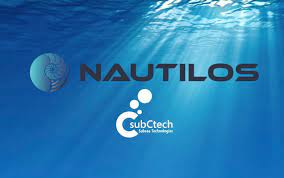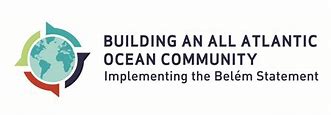initiative
Type of resources
Available actions
Topics
Keywords
Contact for the resource
Provided by
Years
Formats
Representation types
status
-

The International Whaling Commission was set up under the International Convention for the Regulation of Whaling which was signed in Washington DC on 2nd December 1946. The preamble to the Convention states that its purpose is to provide for the proper conservation of whale stocks and thus make possible the orderly development of the whaling industry. The Commission undertakes extensive study and research on cetacean populations, develops and maintains scientific databases, and publishes its own peer reviewed scientific journal, the Journal of Cetacean Research and Management. A list of catches since the moratorium came into place (in the 1985/6 Antarctic Season) up to 2019 (download link).
-

NAUTILOS, a Horizon 2020 Innovation Action project funded under EU’s the Future of Seas and Oceans Flagship Initiative, aims to fill in marine observation and modelling gaps for biogeochemical, biological and deep ocean physics essential ocean variables and micro-/nano-plastics, by developing a new generation of cost-effective sensors and samplers, their integration within observing platforms and deployment in large-scale demonstrations in European seas. The principles underlying NAUTILOS are those of the development, integration, validation and demonstration of new cutting-edge technologies with regards to sensors, interoperability and embedding skills. The development is always guided by the objectives of scalability, modularity, cost-effectiveness, and open-source availability of software products produced. Bringing together 21 entities from 11 European countries with multidisciplinary expertise, NAUTILOS has the fundamental aim to complement and expand current European observation tools and services, to obtain a collection of data at a much higher spatial resolution, temporal regularity and length than currently available at the European scale, and to further enable and democratize the monitoring of the marine environment to both traditional and non-traditional data users.
-

The North East Atlantic Fisheries Commission (NEAFC) is the Regional Fisheries Management Organisation (RFMO) for the North East Atlantic, one of the most abundant fishing areas in the world. It is comprised of Contracting Parties which have signed up to the Convention on Multilateral Cooperation in North East Atlantic Fisheries, which entered into force in November 1982. The area covered by the NEAFC Convention stretches from the southern tip of Greenland, east to the Barents Sea, and south to Portugal. Most of the information on this website is aimed at scientists, control experts, statisticians and managers from the Contracting Parties and other international organisations. The objective of NEAFC is to ensure the long-term conservation and optimum utilisation of the fishery resources in its Convention Area, providing sustainable economic, environmental and social benefits.
-

Infield Systems, now part of Wood Mackenzie (for the full news story please follow this link), is an energy research and analysis firm that is dedicated to the provision of accurate and up-to-date information, databases, research, market forecasts, mapping, commercial market due-diligence, transaction support, business strategy, analysis and intelligence to the global offshore oil, gas, renewable energy and associated marine industries. Over the past 25 years Infield Systems has developed an extensive range of products and services to assist industry professionals, analysts and investors with their business and investment decisions. Within its core markets, Infield Systems has become widely acknowledged as one of the definitive resources of information, research and analysis. Infield Systems services clients from a wide range of organisations including exploration and production companies, service suppliers, offshore contractors, manufacturers, government agencies, financial institutions and investors. In addition Infield provides information, analysis and commentary for the energy trade press and at industry conferences through presentation of papers and keynote speeches. Products and services are broadly divided into the following key areas: - Data Services - Research - Business Strategy & Analysis - Transaction Services
-
Every year, millions of tons of plastic enter the oceans, of which the majority spills out from rivers. A portion of this plastic travels to ocean garbage patches, where it gets caught in a vortex of circulating currents alongside plastic from other sources (e.g. offshore fishing activities). If no action is taken, plastic will increasingly impact our ecosystems, health, and economies. The Ocean Cleanup is a non-profit organization developing and scaling technologies to rid the oceans of plastic. To achieve this objective, we have to work on a combination of closing the sources of plastic pollution and cleaning up what has already accumulated in the ocean and doesn’t go away by itself. This goal means we plan to put ourselves out of business – once we have completed this project, our work is done. To rid the oceans of plastic, we need not only to clean up what is already out there but also stop new plastic from entering the ocean – we need to close the tap. Working together with government leaders, individuals, and private corporations, our goal is to tackle these 1000 most polluting rivers all over the world Every single year, marine plastic costs the economy (6 to 19) billions of dollars – impacting tourism, fisheries and aquaculture, and (governmental) cleanups. And that doesn’t include the impact on our health and on the marine ecosystem. Intercepting plastic in rivers is much more cost-effective than dealing with the consequences downstream.
-

The All-Atlantic Ocean Research and Innovation Alliance (AAORIA) is the result of science diplomacy efforts involving countries from both sides of the Atlantic Ocean. It builds upon the success of two existing cooperative agreements – the Galway Statement on Atlantic Ocean Cooperation which was signed by the European Union, United States, and Canada in 2013; and the Belem Statement on Atlantic Ocean Research and Innovation Cooperation which was signed by the European Union, Brazil, and South Africa in 2017 as well as on several other bilateral and multilateral agreements. AAORIA aims to enhance marine research and innovation cooperation along and across the Atlantic Ocean. In 2022, the “All-Atlantic Declaration” was signed to revitalize collaboration among current initiatives and enhance the coordination between the Galway Working Groups, All-Atlantic Joint Pilot Actions, and related projects. Additionally, it aims to engage new partners and initiatives to join the All-Atlantic community.
-

The project’s purpose is to introduce new low trophic species, products and processes in marine aquaculture value chains across the Atlantic. Low trophic species are those organisms low on the food chain as sea urchins or mussels. The five chosen value chains of AquaVitaeinclude macroalgae, Integrated Multi-Trophic Aquaculture (IMTA), echinoderm species (e.g. sea urchins), shellfish and finfish. IMTA is a process that farms several species together using waste from one species as feed for another. One of the main expected results of the project would be the creation of real and meaningful collaborative links between researchers, industry and other aquaculture stakeholders in the Atlantic area. AquaVitae will contribute to the Belém Statement, the joint Declaration on Atlantic Ocean Research and Innovation Cooperation between the European Union, Brazil, and South Africa through: - Setting up a network for knowledge and research exchange through the Atlantic. - Sustainable use of marine resources with a circular economy approach. - Better monitoring of aquaculture activities through new and emerging technologies. - Contributing to the well-being of aquaculture communities. - Enhancing citizen engagement through training and outreach activities. - Setting up student exchanges and industrial apprenticeships.
-
The European Tracking Network (ETN) aims at bringing together marine researchers based in Europe that use aquatic biotelemetry as a tool. The main goals of the network are the promotion of transboundary cooperation, the establishment of a pan-European aquatic telemetry infrastructure network, improved data sharing through a central data portal and enhanced funding opportunities. ETN is co-coordinated by IMAR/University of the Azores and the Canadian Ocean Tracking Network (OTN) initiative. ETN is a partner node of OTN. The central data platform is hosted by the Flanders Marine Institute (VLIZ) and provides three key services to the users. 1) Data and metadata are stored centrally at a PostgreSQL database. To facilitate the data entry and data management for the users, a web application was developed in PHP using Symfony framework. 2) A data explorer is available to visualize the data. Datasets can be filtered based on area, species or time frame. In addition, detection data can be linked to other data types ( (e.g. moon index and tides) and several plot options are available. 3) In the R-studio environment, more detailed analyses can be performed.
-

The technologies developed will expand our knowledge of the ocean’s interconnected systems and provide tangible benefits to the industries that rely on them, such as fisheries and aquaculture. The data generated will also support conservation initiatives and provide vital information to policy makers. The future impact of these valuable technologies relies on their accessibility. Therefore, TechOceanS technology pilots will be low-cost and place minimal demands on existing infrastructure, allowing them to be made available for use by all countries regardless of resources. TechOceanS will also work with the IOC-UNESCO to develop “ocean best practices” standards for training and monitoring of metrology and ocean systems.
-
.jpg)
NAMMCO is an international regional body for cooperation on conservation, management and study of cetaceans (whales, dolphins and porpoises) and pinnipeds (seals and walruses) in the North Atlantic. The members of NAMMCO — Faroe Islands, Greenland, Iceland and Norway — are committed to sustainable and responsible use of all living marine resources, including marine mammals. Through regional cooperation, the NAMMCO member countries aim to strengthen and further develop effective conservation and management measures for marine mammals. Acknowledging the rights and needs of coastal communities to make a sustainable living from what the sea can provide, such measures should be based on the best available scientific evidence and user knowledge and take into account the complexity and vulnerability of the marine ecosystem. The NAMMCO Agreement focuses on consolidating and advancing scientific knowledge of the North Atlantic marine ecosystem as a whole, and understanding better the role of marine mammals in this system. In 2017 NAMMCO member countries reaffirmed their cooperation through the Nuuk Declaration. NAMMCO Catch database: This database of reported catches is searchable and it is possible to filter the information by country, species or area. It is also possible to sort the different columns in ascending or descending order and to show up to 100 entries per page. Carry-over from previous years are included in the quota numbers, where applicable. NAMMCO aims to ensure that this database is kept up to date with correct and validated catch data. The reported catch data for harbour seals in Greenland prior to 2012 is not included in the database due to known sources of error. This includes identified errors in where harbour seal catch data has been entered in hunting reports, and cases of species misidentification.
 Catalogue PIGMA
Catalogue PIGMA